Are you fascinated by the Earth's natural history? These are the geology museums you should visit in Arizona:
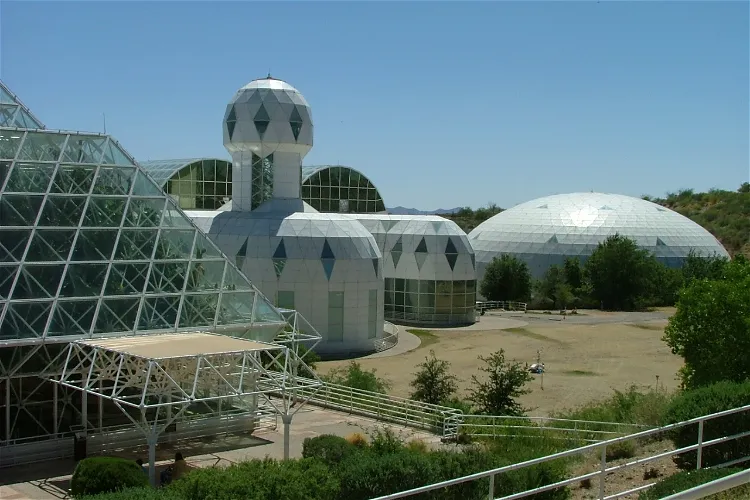
Biosphere 2
Oracle, AZBiosphere 2 is a unique architectural and ecological marvel located in Arizona, USA. Constructed in 1991, the primary objective of this project was to create a self-sustaining ecosystem that could function independently from the outside world. This ambitious endeavor was an attempt to prove that life could be sustained long-term within a closed ecological system.
Painted Desert Visitor Center - Petrified Forest National Park
Petrified Forest National Park, AZThe Petrified Forest National Park is a significant natural attraction located in the northeastern part of Arizona, near the city of Flagstaff. It encompasses the Painted Desert, a vast area known for its colorful and eroded badlands. The park is easily accessible via the Interstate 40 highway, making it a convenient destination for those traveling in the region.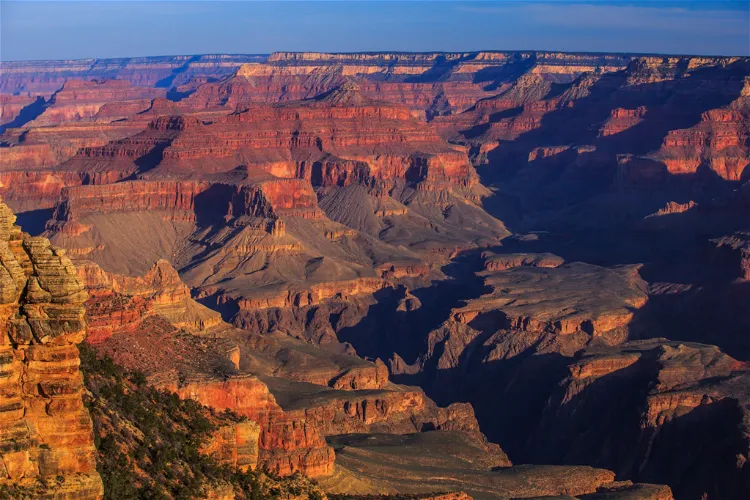
Historic Kolb Studio Art and History Exhibits
Grand Canyon Village, AZThe Grand Canyon National Park, situated in the state of Arizona, is among the oldest national parks in the United States. This park is a testament to the country's commitment to preserving its natural beauty and history for future generations. It offers visitors a unique opportunity to explore one of the world's most iconic natural landscapes.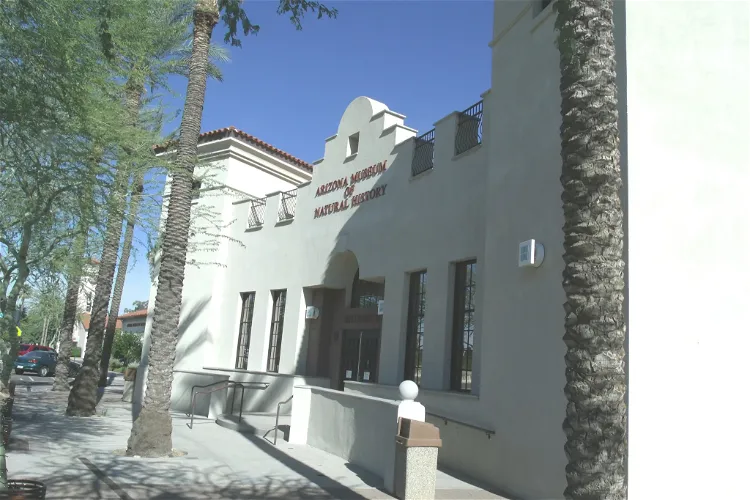
Arizona Museum of Natural History
Mesa, AZThe Arizona Museum of Natural History, originally known as the Mesa Southwest Museum, is a natural history museum situated in the city of Mesa, Arizona. It showcases the natural and cultural history of the southwestern United States, making it a significant destination for those interested in understanding the region's past.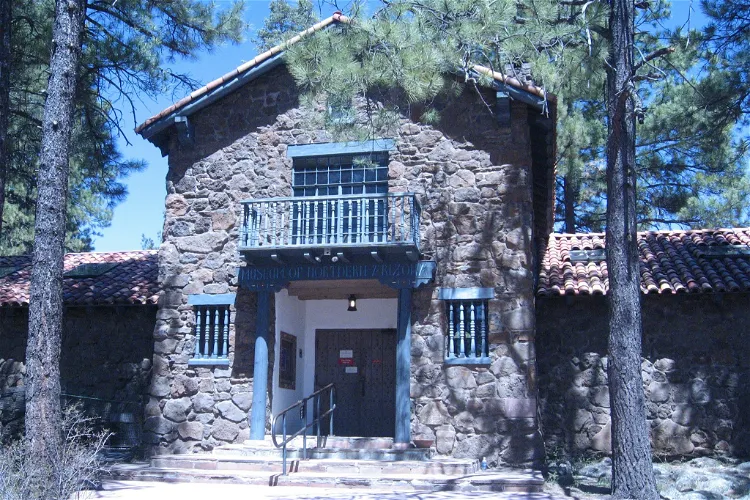
Museum of Northern Arizona Flagstaff
Flagstaff, AZThe Museum of Northern Arizona, located in Flagstaff, Arizona, serves as a repository for Indigenous artifacts and natural history specimens from the Colorado Plateau. This museum is a significant destination for those interested in learning about the Indigenous cultures and natural history of the region.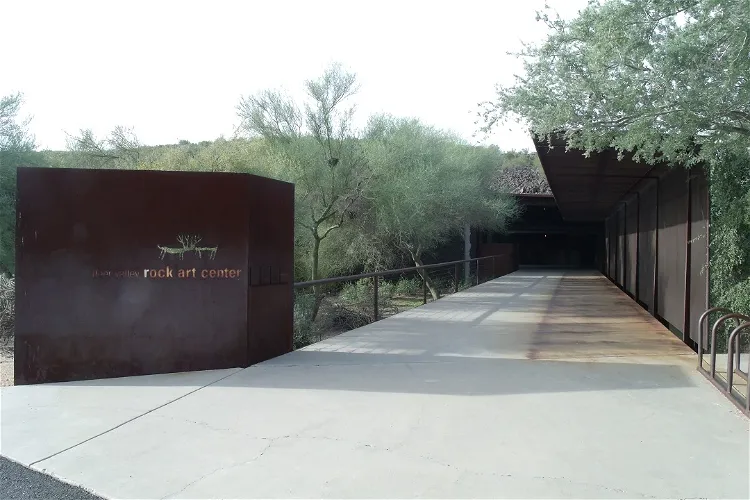
Deer Valley Petroglyph Preserve
Glendale, AZThe Deer Valley Petroglyph Preserve, previously known as the Deer Valley Rock Art Center, is a 47-acre nature preserve located in the Deer Valley area of Phoenix, Arizona. The preserve is home to over 1500 petroglyphs from the Hohokam, Patayan, and Archaic periods, which are visible on 500 basalt boulders scattered across the site.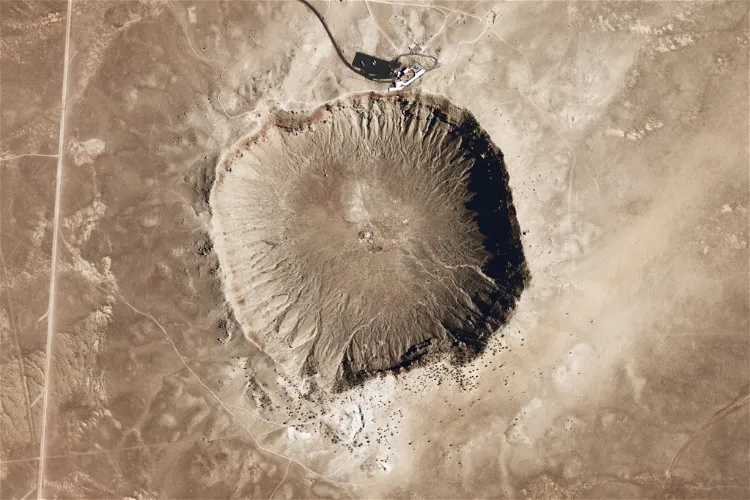
Meteor Crater - Barringer Space Museum
Winslow, AZThe Barringer Crater, also known as the Arizona Crater or Meteor Crater, is a renowned impact crater located approximately 55 kilometers east of Flagstaff in the desert of northern Arizona, United States. Named after mining engineer and businessman Daniel Moreau Barringer, it is considered one of the most famous impact craters on earth.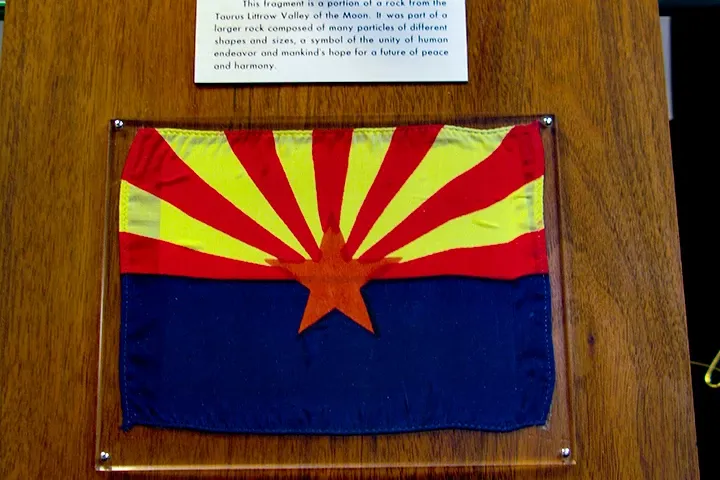
Alfie Norville Gem & Mineral Museum
Tucson, AZThe Alfie Norville Gem & Mineral Museum, formerly known as the University of Arizona Mineral Museum (UAMM), is situated in the Pima County Courthouse in downtown Tucson, Arizona. This location is easily accessible and offers a unique setting for the museum's extensive collection.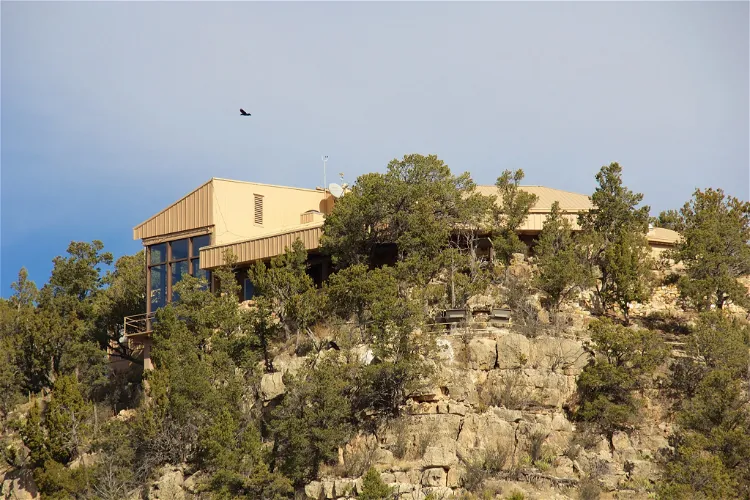
Walnut Canyon National Monument
Flagstaff, AZWalnut Canyon National Monument, situated near Flagstaff, Arizona, is a unique natural attraction carved into a wooded plateau of pines. This location offers a serene environment for visitors to explore and appreciate the beauty of nature. The monument is easily accessible and provides a picturesque setting for outdoor activities.
Deer Valley Petroglyph Preserve
Glendale, AZLocated just outside the city is a quarter-mile nature trail that offers visitors a glimpse into the region's natural and historical significance. The trail is notable for its petroglyphs, native desert plants, and local wildlife. Further academic relevance is provided by the preserve's display of h- 11
Buseck Center for Meteorite Studies
Tempe, AZThe Buseck Center for Meteorite Studies, established in 1960, is located on the Tempe Campus of Arizona State University. It is home to the world's largest university-based meteorite collection, making it a significant destination for those interested in meteorites and space science.